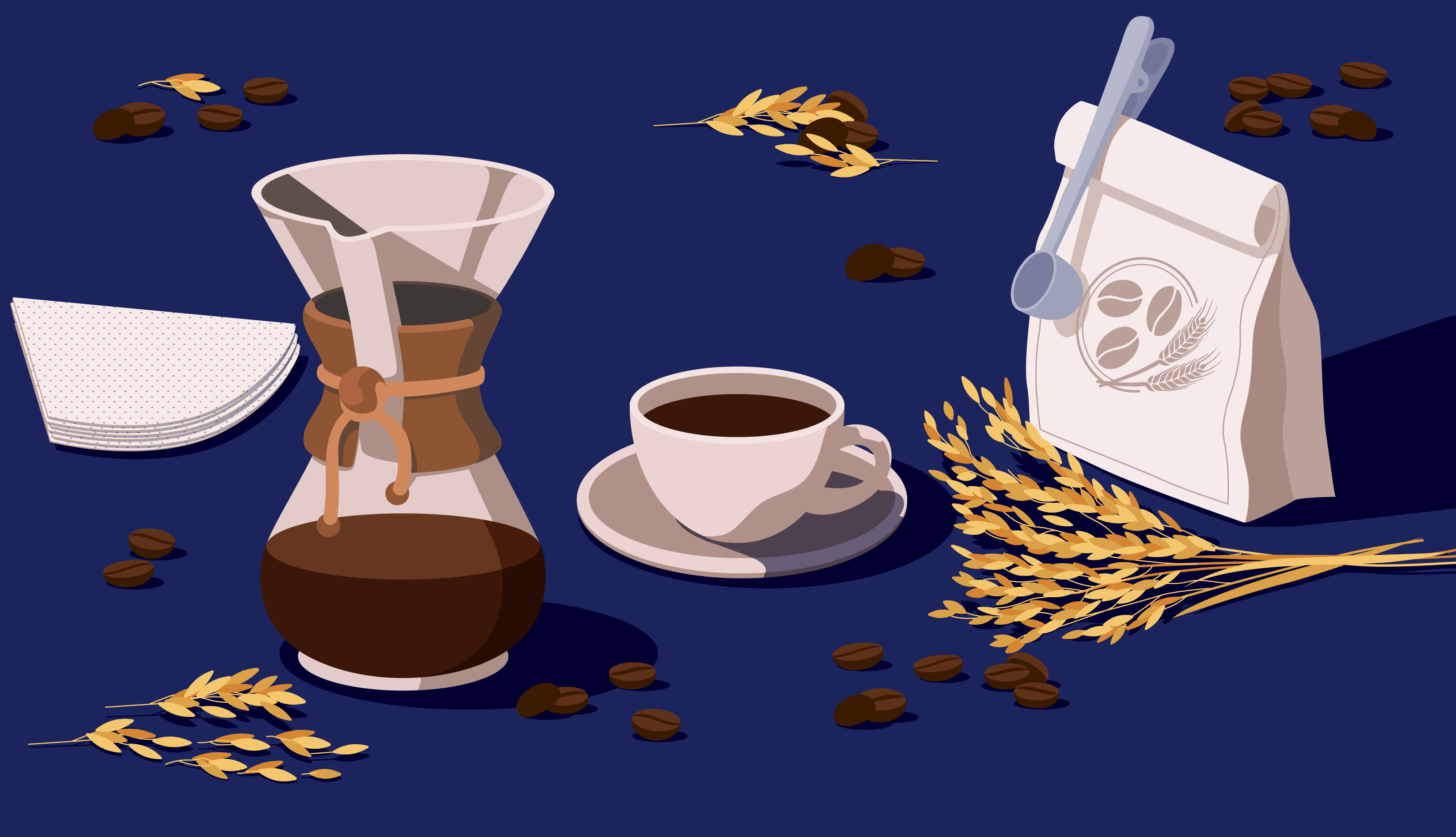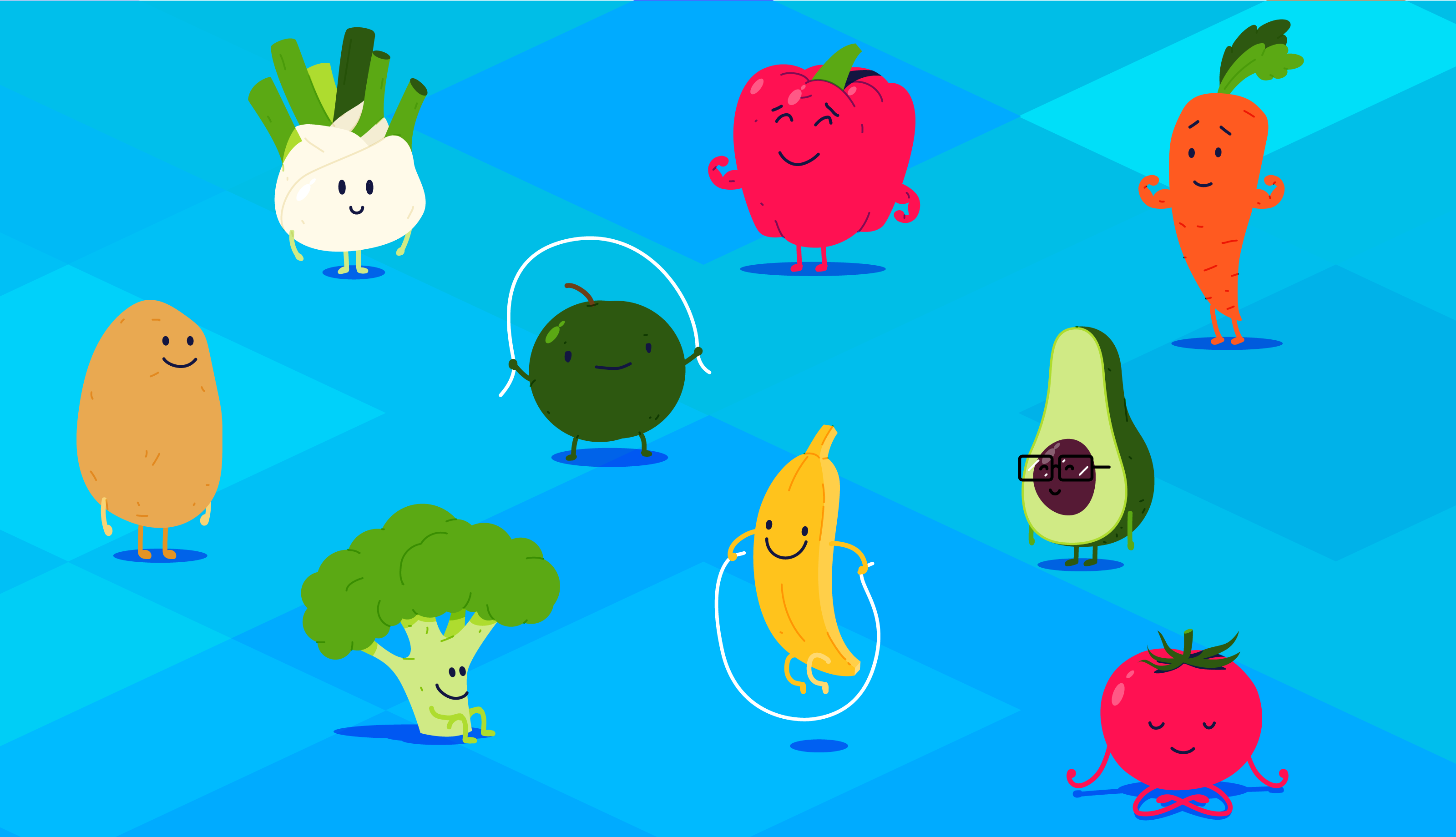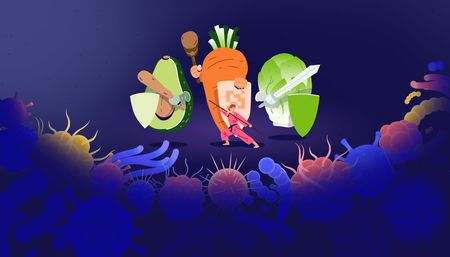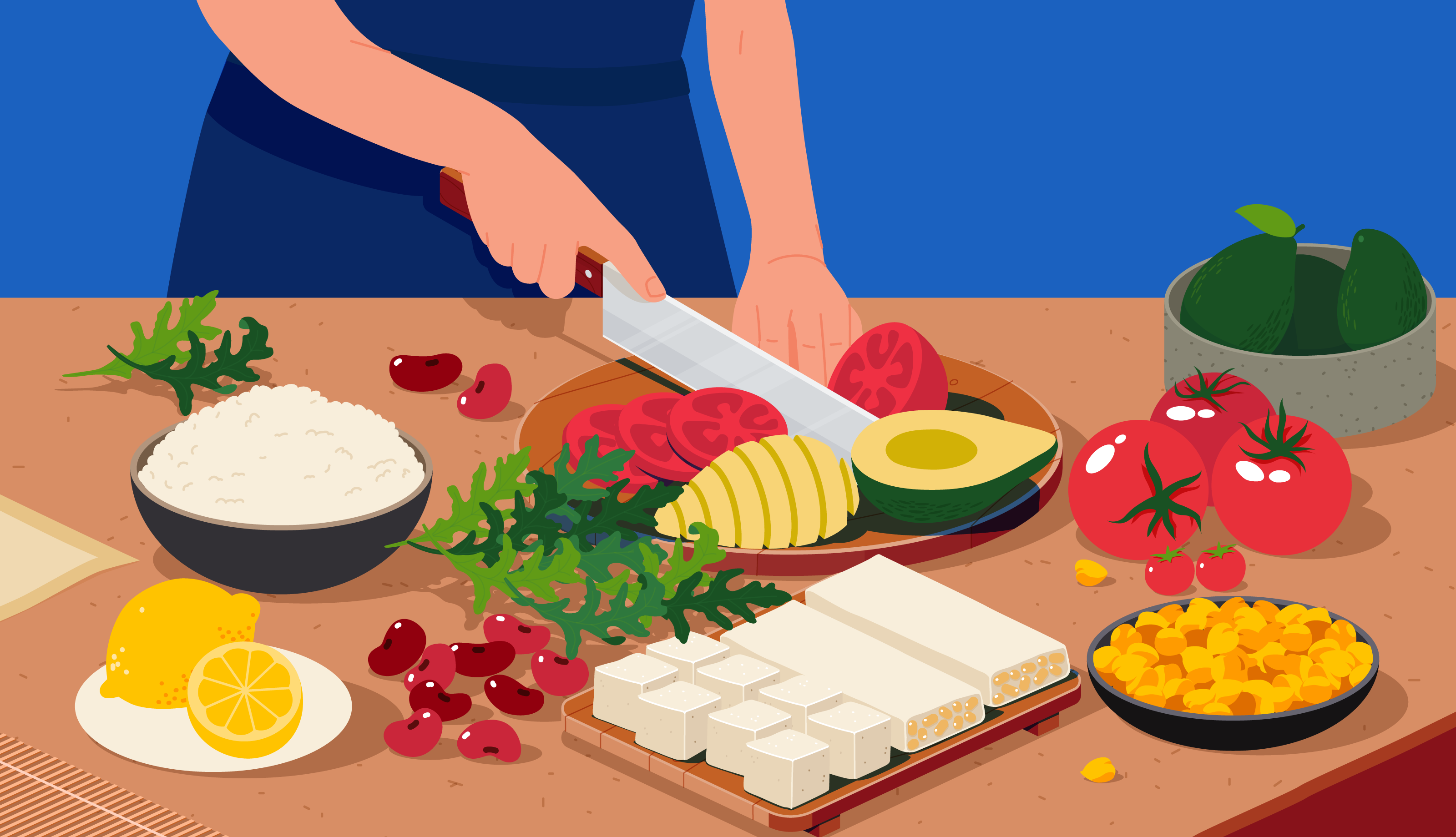In a world obsessed with gluten-free diets, coffee has naturally come under scrutiny. Here’s what you need to know about hidden sources of gluten in every type of coffee.
In the last hundred years, humans have been on a mission to demonise food. Meat, fat, salt, sugar, and now gluten have all been accused of making us fatter, sicker and unhappier. And somewhere, right now, in an obscure corner of the internet, there are people spreading rumors about the gluten in coffee.
Table of contents
- Is coffee gluten-free
- Is there gluten in coffee beans
- Is tea leaf gluten-free?
- Is instant coffee gluten-free?
- Gluten-free coffee alternatives
- Best gluten-free coffee substitutes
- Good gluten-free coffee cake
- Health conditions and gluten
- Celiac disease and gluten
- Gluten ataxia - a rare condition
- Wheat allergy and gluten
- Non-celiac gluten sensitivity
- Hashimoto’s and gluten
- Does coffee have gluten conclusion
That’s not to say that gluten doesn’t make some people very sick – because it can. It’s called celiac disease and it is diagnosed by medical professionals. Celiac sufferers should definitely worry about coffee and gluten, and we’ll explain how to make sure you’re getting a gluten-free coffee.
We’ll explore what health conditions warrant a gluten-free diet, and why adopting a gluten-free diet isn’t for everyone. After all, unnecessary, restrictive diets have consequences for your body, your gut bacteria, and your mental health. Here’s everything you need to know about gluten and coffee.
Is coffee gluten-free?
The short answer is yes, coffees does not have gluten. Served black or with dairy milk and sugar - but no creamer - and you have gluten-free coffee. Coffee beans are gluten-free. They belong to a completely different branch of the plant kingdom (Gentianales), which are flowering plants. Grains that contain gluten come from Poales (a fancy name for grasses).
If you’re looking for gluten-free coffee brands, always check the label before buying to check that the coffee was not produced in a factory that handles gluten-based products. As a rule of thumb, the cheaper any product is, the more likely it will contain additives for flavor and texture. Often, you can easily avoid gluten by buying plain coffee beans and grinding them yourself.
Is there gluten in coffee beans?
The coffee bean is gluten-free. That’s probably because the biology of coffee beans is very different to that gluten-containing grasses, especially when you look at their seeds and the function of gluten in plant reproduction.
Gluten is composed of two protein molecules – gliadin and glutenin – and their function is to store starches that will nourish the seed when it sprouts (germination). The world’s favourite bean doesn’t have or need gluten because it relies on other natural sugars to germinate.
Is tea leaf gluten-free?

The same reasoning can be applied to tea leaves. Tea comes from a plant called Camellia sinensis – evergreen shrubs native to Asia and southern Africa. As we mentioned, gluten stores starches to help grains germinate. In contrast, tea leaves have no direct function for plant reproduction.
In short, no. Tea leaves do not contain gluten. However, due to the modern industrial efficiency, they may have been processed in a factory that handles gluten. If you have been diagnosed with celiac, always read the label to make sure.
Is instant coffee gluten-free?
Plain, black instant coffee is gluten-free, but that doesn’t mean that all coffee is gluten-free. It’s made by roasting beans, extracting the flavour compounds, and freeze-drying the beans to remove the liquids. Then all you have to do is pop it in a mug with hot water, and voila, gluten-free instant coffee.
If you have celiac disease, always check the labels and only select brands that guarantee they are “gluten-free”. It’s also worth noting that barista-inspired instant coffees often contain milk, sugars, oils, and texturising agents that your body would probably be happier without.
Is coffee creamer gluten-free?

Coffee “creamer” is an artificial substitute for milk or cream that is especially popular in the United States and is slowly making its way into European supermarkets. The most iconic brand of coffee creamer – Coffee mate - markets their products as gluten-free dairy-free coffee creamer.
However, gluten is used as a texturising agent, so you should always check the label if you have been diagnosed with celiac disease. It’s worth mentioning that even when coffee creamer is gluten-free, it’s still a highly processed food with many complex ingredients that don’t have much (if any) nutritional value for your body.
Is there a gluten-free coffee alternative?
That’s an excellent question because, literally, there’s only so much coffee your body can handle in a day, and it’s because of the CYP1A2 gene. Your DNA contains the instructions for your body to break down and excrete caffeine, which is a stimulant.
Some people metabolise caffeine very quickly, and others can hardly handle it at all. That’s because the CYP1A2 gene determines how quickly liver enzymes (called cytochromes) can deactivate the caffeine.
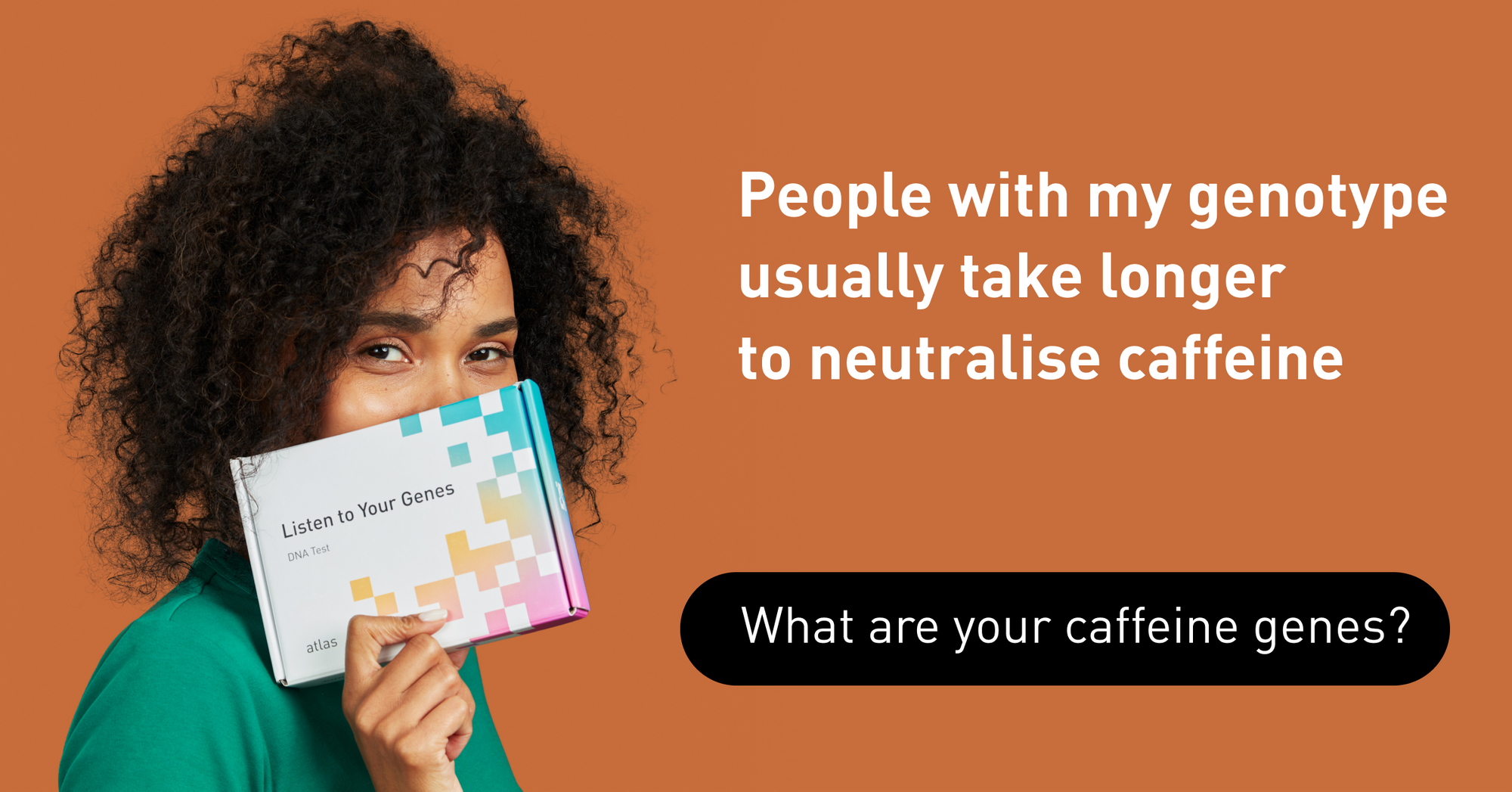
If you feel queasy after just a mug, you might be a slow metaboliser, but if you can drink coffee like an Italian and still sleep soundly, your liver could be uniquely suited to the job.
| Caffeine metabolism | What is means for you |
|---|---|
| Slow metaboliser | Your cytochromes don’t work very quickly. You are more susceptible to caffeine overload. |
| Normal metaboliser | You can handle 300mg of caffeine per day, which is 2–3 cups of coffee or 4-5 cups of tea. |
| Fast metaboliser | Your cytochromes quickly neutralise caffeine. You can tolerate more caffeine than others, but that doesn’t mean you should overdo it! |
Best gluten-free coffee alternatives
Fortunately, it’s not hard to find a gluten-free coffee alternative that can meet your flavor expectations. You probably won’t find it in your average store, but a health foods shop or Amazon are great places to source gluten-free caffeine free coffee alternatives.
There are two different types of caffeine-free coffee substitutes you can buy: instant or French press style. However, coffee substitutes aren’t always gluten-free (some contain barley) so always check the label before buying. Here are the best gluten-free coffee alternatives:
- chicory root coffee alternative
- roasted fig coffee substitute
- date seed coffee
☝️TIP☝️The Atlas DNA Test can tell you what type of coffee drinker you are by looking at your CYP1A2 gene variant.
Is there any good gluten-free coffee cake?

Sadly, most mass-produced gluten-free baked goods are very stodgy, dense and crumbly. That’s because gluten is a really important molecule for baking. This incredibly stretchy protein is able to trap air bubbles when cooking, resulting in fluffy, firm baked goods that don’t fritter away. There is no known molecule that can replace gluten and achieve the same texture.
So even though coffee is gluten-free, it can be hard to find satisfactory gluten-free coffee cake. If you do have a desperate craving, we recommend trying some alternative coffee-flavored desserts, like gluten-free coffee pudding or some gluten-free coffee coconut squares.
Health conditions associated with gluten
Gluten causes a few, serious health conditions. If you have been diagnosed with them, you should definitely avoid all sources of gluten, which can trigger symptoms.
Celiac disease and gluten
Celiac disease is a serious autoimmune condition in which the body reacts severely to gluten. The reaction causes acute inflammation which affects the lining of the small intestine. This damages the villi (tiny extrusions on the lining that absorb nutrients) and impairs the intestine’s ability to absorb essential nutrients and energy.
Genetics play a role in celiac disease. According to the Celiac Disease Foundation, if you have a direct relative with celiac, there is a 1 in 10 risk that you might develop it too. You can check whether your DNA increases the risk of celiac disease with the Atlas DNA Test.
Just remember, being genetically predisposed to celiac disease does not mean you will get celiac disease. If you have symptoms like chronic diarrhea, weight loss, abdominal pain, fatigue and joint pain, contact your doctor for diagnostic testing.
Gluten ataxia
Gluten ataxia is a rare condition also caused by gluten in which the immune system “attacks” the central nervous system. It causes symptoms like tingling extremeties and problems with speech, as well as difficulties with eye and bodily movements. However, gluten ataxia doesn’t necessarily cause digestive issues.
Wheat allergy
Wheat allergy is different to celiac (which is a food intolerance). If you have symptoms like a runny or stuffy nose, hives, abdominal cramps, diarrhea, or headaches after eating wheat-based products like pasta and bread, consult your doctor or an allergist about testing.
Non-celiac gluten sensitivity
Some people may be more sensitive to gluten than others. This condition is much less severe than celiac disease, but it is also little understood. Currently, many people are self-diagnosing themselves with gluten sensitivity and adopting a gluten-free diet.
However, there are many causes of digestive symptoms and it’s essential to undergo diagnostic testing by a doctor before adopting a gluten-free diet, which is very restrictive and can cause nutritional deficiencies if not managed correctly.
Hashimoto's and gluten
Hashimoto’s thyroiditis is an autoimmune disease that causes damage to the thyroid. It is more common in women than in men. There is evidence to suggest that a gluten-free diet can help patients diagnosed wih Hashimoto’s thyroiditis.
Does coffee have gluten: the final word

Yes, every coffee bean is gluten free when it is picked. In fact, every coffee bean and tea leaf is gluten-free - the way nature intended it. After roasting and grinding, coffee doesn’t contain gluten. Even plain, instant coffee has no gluten in it.
Where you need to be careful is buying flavored coffee or coffee creamer, which may contain gluten or are processed in a factory that handles gluten. Also remember that it can be hard to find a good gluten-free coffee cake because gluten is what gives baked goods texture and rise.
And finally, only doctors and other qualified medical professionals can diagnose you with a gluten-related health condition. The gluten-free diet is very restrictive and it can cause nutritional deficiencies if poorly handled. If you’re trying to clean up your eating habits, try a plant-based diet instead.

